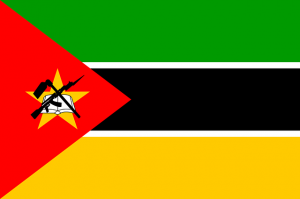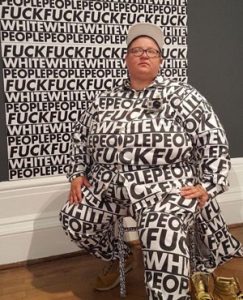Pretoria – The New Development Bank (NDB), which was recently formed by the BRICS countries, is set to mobilise infrastructure resources for developmental projects for the African continent.
As a country that is fighting for African integration, South African was excited that it was selected to host Africa’s regional office, which will take forward the regional integration agenda, says International Relations and Cooperation Minister Maite Nkoana-Mashabane.
Speaking about South Africa’s tenure as BRICS Chair at UNISA on Friday, Minister Nkoana-Mashabane said South Africa’s interaction with the BRICS states is premised on three levels of engagement.
On the national level, South Africa will advance its own interests. At a regional level, the country will promote regional integration and interaction with specific emphasis on the African Union mandate given to President Jacob Zuma to promote infrastructure development across the continent. On the global level, South Africa is advocating for a more inclusive global governance system.
“The Africa regional centre will not rotate. It is going to focus on the things that Africans have asked from us as South Africa, which is to promote infrastructure development across the continent,” said Minister Nkoana-Mashabane.
Infrastructure development, she said, will go a long way in unleashing the economic potential, competitiveness and create jobs for the continent.
Africa is emerging as one of the fastest growing markets, with the potential of future growth due to the new consumer market that is emerging, said the minister.
In their recent summit held last month, the five members of the group – Brazil, Russia, India, China and South Africa (BRICS) – laid out the designs for the establishment of the NDB and Contingent Reserve Arrangement (CRA).
The new bank will be based in Shanghai, China, while an African regional centre of the bank will be located in South Africa. The regional centre will be opened concurrently with the headquarters before the first loan in 2016.
Bank operation
The bank will have a starting authorised capital of $100 billion, of which $50 billion will be pledged.
The five countries decided that the first chair of the Board of Governors shall be from Russia, the first chair of the Board of Directors from Brazil, and the first President of the bank from India.
The leaders also laid the foundation for the establishment of the CRA to help one another in times of financial crisis. Each country will achieve this by collectively pledging a total of US$100 billion to a common pool – with China contributing the most (US$41 billion), Brazil, Russia and India contributing $18 billion each, and South Africa the least (US$5 billion).
Minister Nkoana-Mashabane indicated that the idea of the bank was first mooted by South Africa and delivered to Brazil under their chairmanship of the group.
“We are not going back home to report that it didn’t happen… We were there at the summit in Sanya, China, when the vision document of BRICS was crafted and adopted. We were in New Delhi, India, when the idea of a development bank was mooted. The decision to establish the Bank was taken in Durban.
“From Durban to the recent 6th BRICS Summit in Brazil, this idea has now been given life. In Brazil, our leaders reaffirmed our core vision to bring about a more democratic, multipolar world order. This is the world we want. This is the world we yearn for.”
Minister Nkoana-Mashabane said what is imperative about the BRICS bank is that the member states are equal in access, shareholding, and representation in leadership positions.
However, the minister reiterated that the bank was not against any formation but a contribution towards the development of a better world.
“Indeed, BRICS and the New Development Bank is a force to be reckoned with,” she said, mentioning the lack of transformation in the Bretton Woods institutions in equitable representation, especially developing countries.
The World Bank and IMF have in the past been under criticism from developing countries for a lack of representation and having strict conditions for borrowers.
The BRICS bloc represents 43% of the world’s population, approximately one fifth of global Gross Domestic Product (GDP), estimated at US$13.7 trillion, as well as combined foreign reserves estimated at US$4.4 trillion.
In 2012, the BRICS countries accounted for approximately 11% of global annual Foreign Direct Investment (FDI) flows (US$465 billion) and 17% of world trade.
Russian sanctions
Asked what the sanctions against Russia mean for the BRICS grouping, Minister Nkoana-Mashabane said South Africa abstained from voting in the UN in March, because it was important to get all the facts before voting.
South Africa and other BRICS countries abstained on a resolution defending Crimea’s territorial integrity after a snap referendum in the UN, which led to the Crimea region leaving the rest of Ukraine after 60 years together and joining the Russian Federation.
While the statement did not mention Russia by name, the BRICS countries in their last meeting condemned unilateral military interventions and economic sanctions in violation of international law and universally recognized norms of international relations.
“Bearing this in mind, we emphasize the unique importance of the indivisible nature of security, and that no state should strengthen its security at the expense of the security of others,” BRICS said.








